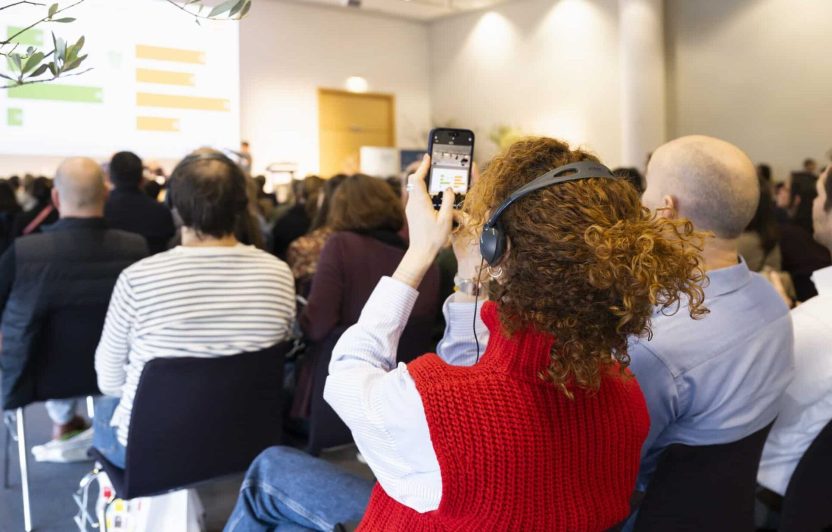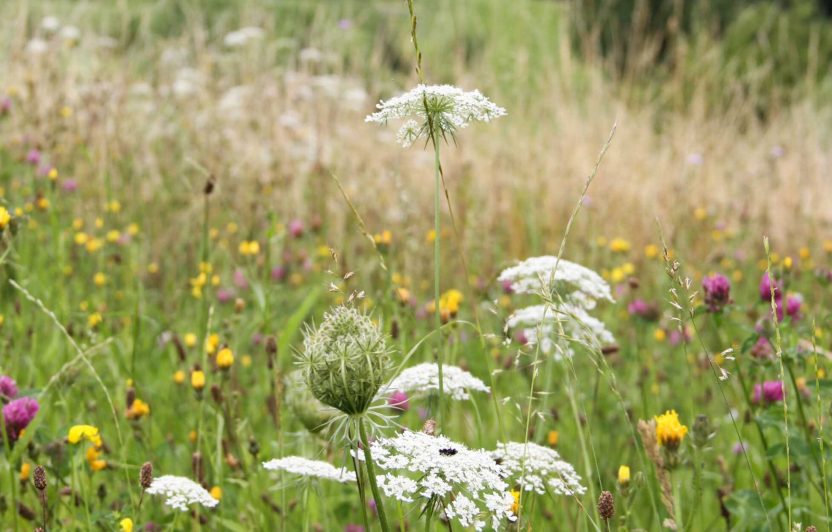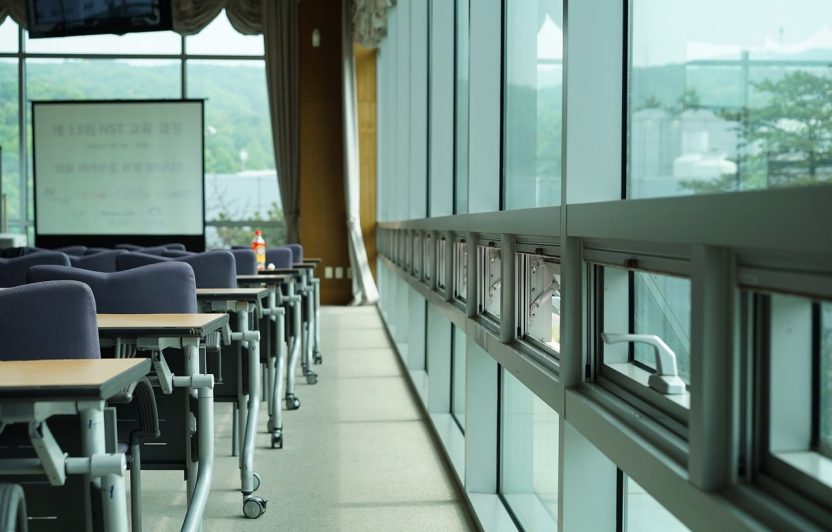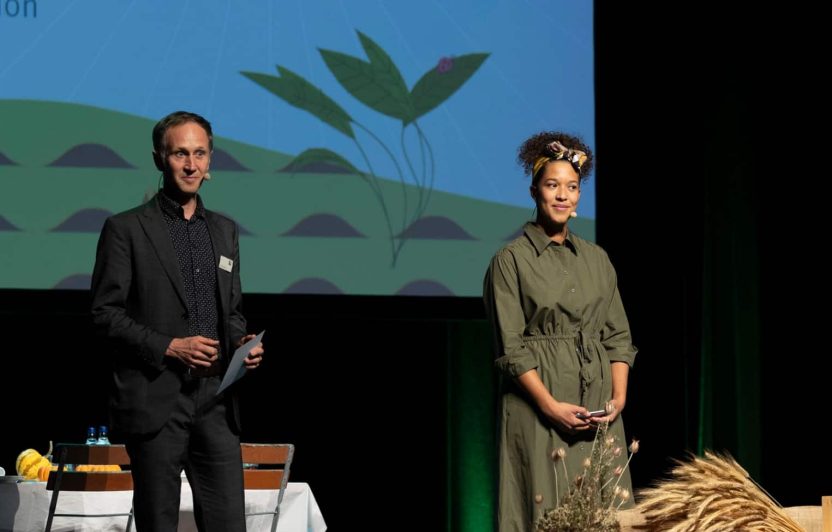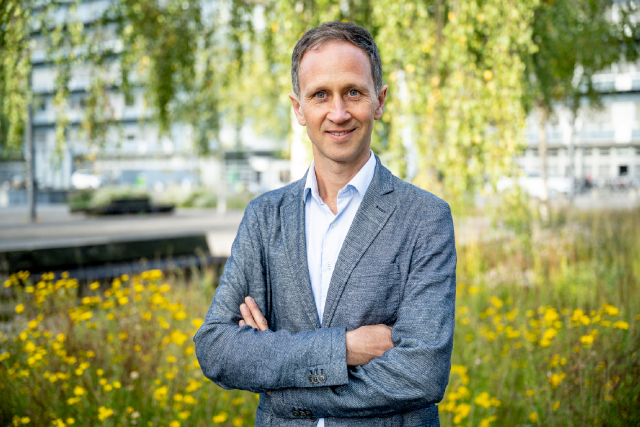
Frank Eyhorn, why is Biovision committed to the transformation towards sustainable food systems?
Food production is the human activity that most affects the face of the earth. The food system – from field to fork – produces around 30% of greenhouse gases and plays a central role in biodiversity decline and the loss of fertile soil. If we can manage to change agriculture and the food system, we will make a major contribution to solving some of today’s most pressing problems: an agroecological agriculture preserves biodiversity, increases resilience to climate-related changes, provides healthy food and enables farmers to earn a good income.
But one of the most frequent arguments against organic agriculture is that without industrial agriculture, not enough food could be produced for a growing world population.
This assessment is based on a misconception: people do not starve because too little food is produced. We produce more than enough food worldwide: for example, around 350 kilograms of grain per person per year. But a large proportion of this is fed to farm animals, used for industrial purposes or processed into fuel – or it ends up as food waste in the garbage. So productivity is not our problem, but rather access to healthy food. And access to healthy food can be greatly increased in rural areas of Africa, especially by diversifying agriculture based on agroecological approaches in places that rely on smallholder structures.
Can you clarify?
By cultivating different crops simultaneously, agroecological systems increase resistance to crises – because if one crop fails, it can be compensated by other crop yields. This is also the case for sales: if the price of one product falls, a farmer’s entire income is not affected.
How is Biovision involved in the transformation of food systems at the political level?
Internationally, working with UN organizations and individual state governments is central, especially in our project countries in East Africa. At the annual meeting of the Committe on World Food Security two weeks ago, we launched – together with the World Food and Agriculture Organization (FAO) and the German and Swiss governments – a platform where government representatives can exchange their experiences with agroecological approaches. This was met with great interest. We are hopeful that a paradigm shift will continue to increase and enable a more profound change.
Where do we stand in Switzerland on the way towards a sustainable form of agriculture?
We like to see Switzerland as a trailblazer in terms of environmental protection – but at least in agriculture, this cannot be backed up by facts. For production, we use large amounts of fossil fuels, and we produce animal feed on almost 60% of our arable land. In terms of pesticide use, we are certainly no better than neighbouring countries. Of the twelve environmental goals we set for ourselves in agriculture, we have not met a single one entirely.
How does it look in neighbouring EU countries?
The European Union took a big step forward this year with its “Farm to Fork” strategy. It has set itself the goal that by 2030, 25% of all land will be farmed organically and pesticide use will be reduced by 50%. Switzerland has no comparably ambitious goals.
Why are we not further along in Switzerland?
We have a very strong agricultural lobby in this country, which for many years has exerted great influence on policy. It even managed to recently suspend an agricultural policy foreseen for 2022 (AP22+) in parliament, a policy that included many good approaches to sustainability. There are strong powers in Switzerland that want to retain the status quo. But more and more people, including farmers, want to see a change, an agriculture that provides a long-term livelihood. This is shown by the pesticide initiatives that will be put on the ballot next year.
Do you see further developments that give hope?
The younger generation in particular is increasingly concerned. It is playing a pioneering role in the development of sustainable agriculture through the movement “Agriculture with a Future”. The movement brings all the key players in the food system together – young farmers and people working in gastronomy and processing industries – to discuss how we can get on track to achieve the food system we want in the future.
Could youth play a similar role in the transformation of food systems as they have in climate change?
I can imagine that the next big movement is just starting.
One of the slogans of the Agriculture with a Future movement is “food is political”. Do you also see it that way?
The younger generation is increasingly realizing how crucial agriculture and the entire food system’s role is regarding the challenges of our time: climate change, biodiversity loss, malnutrition. They are aware that if we are to have a future in the medium term, we must change things now. The daily choices we make when we choose our food have a major impact on the environment and the lives of other people. Our choices are in turn influenced by the framework conditions of consumption and production. This is where politics must step in.
How can Biovision support the transformation of Switzerland’s food systems?
Our role lies in pointing out facts and alternatives and bringing actors together in the interest of setting proper framework conditions for sustainable development – building awareness, disseminating knowledge and supporting movements that work toward future-oriented policies. This is why we support Agriculture with a Future and its efforts to hold a food parliament and develop a food policy.
Switzerland, like many other countries, is in the middle of a second wave of the coronavirus. Is the global pandemic slowing the transformation towards sustainable food systems – or is it promoting change?
Crises are generally known to accelerate change. This is clear in the case of corona: many people have become more aware of the importance of healthy food and sustainable, local production. Yet at the same time, the pandemic is suppressing media coverage of topics like climate change and biodiversity loss – even though these are the much more threatening crises in the medium term.


